Struggling with depression? Asking for help with depression can be really challenging, especially when you are constantly feeling down, hopeless, and helpless. Here are a few ways to reach out and get help.
Coping With Depression
Experiencing grief and sadness are natural emotions. We can’t be happy all the time.However, depression is something very different. It is a diagnosable mood disorder and a mental health condition that can have lasting symptoms.
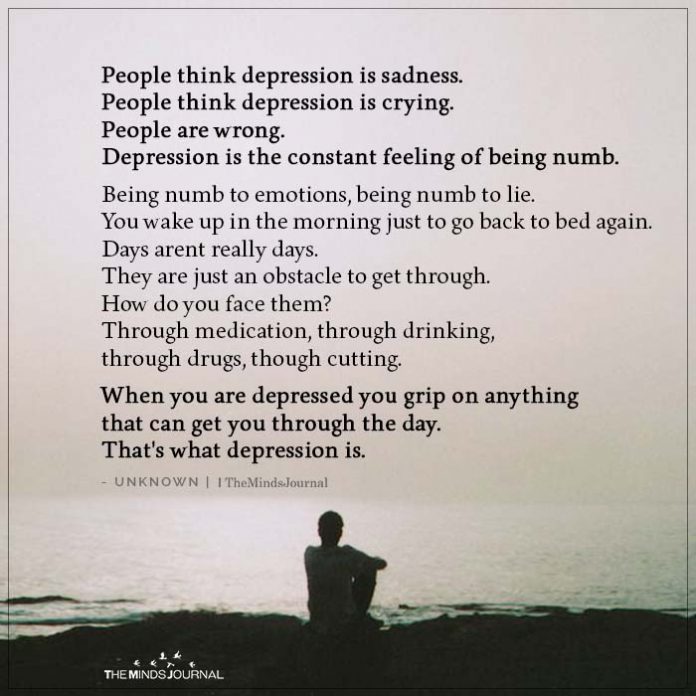
Seeking help with depression begins with understanding what depression actually is and feels like. Unlike sadness, major depression is an unrelenting feeling that looms over you constantly leaving you feeling mentally and emotionally drained. It prevents you from living your life, feeling any positive emotions, or moving ahead in life. Here are a few symptoms of depression that can last over two to three weeks, as listed by WebMD:
- Feelings of guilt, worthlessness, and helplessness
- Fatigue
- Pessimism & hopelessness
- Restlessness
- Changes in sleep patterns or insomnia
- Irritability
- Difficulty concentrating and making decisions
- Loss of interest in pleasurable things
- Changes in appetite
- Headaches and body pains
- Loss of energy
- Suicidal thoughts
Related: Night Time Depression: 6 Reasons Why You Feel Depressed At Night and How To Avoid It
When left untreated, depression may cause serious health issues. However, asking for help with depression can enable you to access various effective treatment options like medication and therapy so that you can live a better, healthier, and happier life.
Seeking Help With Depression
According to the 2017 National Survey on Drug Use and Health, over 7.1% of adults in the US or 17.3 million American adults have experienced at least one episode of major depression in a year. Moreover, the World Health Organization reports that “more than 264 million people of all ages suffer from depression” across the world.
It is believed that around 15% of all adults are likely to experience depression once in their life. However, 35% of individuals suffering from depression do not receive any treatment.
According to Vineeth John, MD, associate professor of psychiatry and behavioral sciences at the University of Texas Health Science Center, “Depression does not come on all at once, so it can be hard for someone with depression to recognize that they need help.”
Related: Ways To Fight Depression: 4 Sure-Fire Things You Can Do Right Now
This is why it is crucial that you reach out for help if you feel depression is making you mentally crippled. But it’s easier said than done. If you keep thinking about how others might feel or what they might think about you, then you will never be able to get the help you need.
The more you delay telling someone about your depressive condition, the more likely it is that you will never muster the courage to tell someone.
When you tell someone that you need help with depression, they will be concerned about you and will extend a helping hand instead of judging you. That is what loved ones are there for.
So instead of getting trapped in your negative thinking, you should be focused on seeking help, healing, and recovering. Take intentional steps in the right direction, irrespective of how small and slow your steps may be.
How To Ask For Help With Depression
If you are still wondering how you can tell a family member or a friend that you need help with depression, then here are a few ways to get started:
1. Stop underestimating depression
Depression is NOT just a sad feeling. It is a mood disorder that requires treatment. Your feelings of disappointment, hopelessness, self-criticism, and failure, and not normal feelings will go away in time. It’s not just a phase. Depression can last a long time and can significantly affect your life and relationships in an adverse way. So take depression seriously and decide to ask for help immediately.
Related: Hiding Your Misery Behind a Happy Mask? You Could be a Victim of Smiling Depression
2. Depression doesn’t define you
Do not attach your identity or yourself with your depression. It is a mental disorder. It is not a manifestation of your failure. Depression is not a sign of weakness nor is it punishment. You are not what your depression makes you feel like.
Your self-worth is not attached to your depression. Your road to recovery starts with this simple realization. Depression is not a result of who you are as a person or something you have done. Your worth does not change due to your depression. You deserve help, love, compassion, and happier life.
3. Educate yourself about depression
If you want to seek help with depression, then you need to see it for what it is – a mental illness. The more you educate yourself and learn about depression and the feelings associated with it, the better you will be able to explain when asking for help with depression.
Conduct some research online or read some books on depression and equip yourself with the necessary knowledge. The more you learn, the better you will be able to cope with it and also learn about some self-help strategies as well.
Related:Seven Ways To Deal With Depression
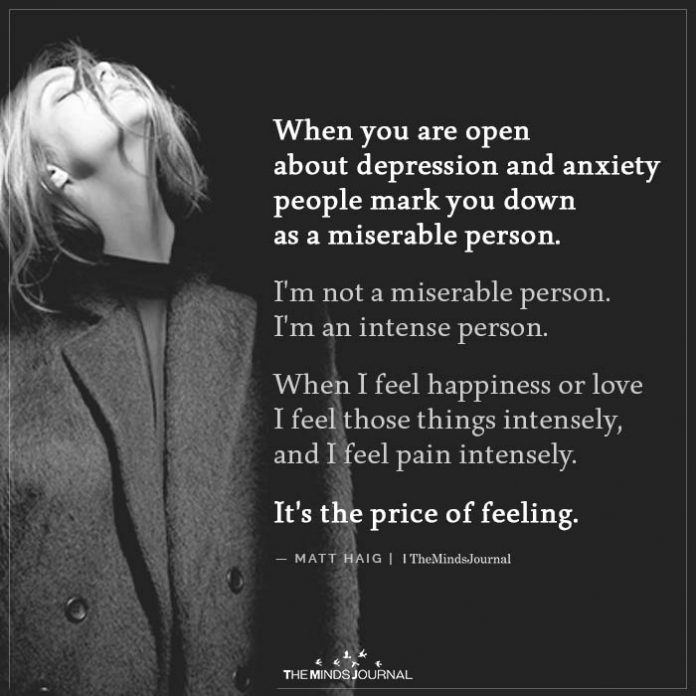
4. Think about who can help you
Should you talk to a beloved family member? Or should you ask a trusted friend for help with depression? Does your school or workplace offer psychological counseling? Think about who is the best person you should ask for help.
Keep aside any feelings of guilt, shame, embarrassment, or social stigma, and list down the names you think are most likely to understand you and help you.
It can be anyone you know and trust – a parent, a sibling, a cousin, a friend, a colleague, a teacher, or a coach. You may also call a helpline and talk about your feelings anonymously to get some support as they are trained to deal with mental health problems.
5. Reach out
Once you have figured out who you are most comfortable with regarding talking about your condition, reach out to them and ask for help. Do not worry about what they will think.
Just let them know what you’re going through and let out everything that is inside you. If you think talking about it out of the blue might be a bit awkward or uncomfortable for you, then you can write a detailed note about your feelings and give it to them. This can make it a bit easier for you to communicate about your depression.
However, you need to be real and genuine about your depression and answer their questions honestly. They might ask you questions like –
How long have you been depressed?
Is there any specific reason or experience for your depression?
What symptoms are you experiencing?
How are you coping with depression?
Are you taking any drugs or substances?
Do you have suicidal thoughts?
Although these questions are difficult to face, you must answer them truthfully. Remember they are not trying to judge you. They are simply trying to understand and help you. Do not feel ashamed or guilty about it. Have an open and honest discussion with your trusted confidant.
6. Ask them to book an appointment
When you are depressed, seeking help with depression can be very difficult. But it can be even more difficult to see a mental health professional or a therapist.
If you are having trouble with calling for an appointment, then ask your trusted person to book an appointment for you. This is a big step and it can be terrifying to admit that you are not okay. So it can often be best to request the person you trust to call for an appointment and even ask them to go with you. Having them by your side can make things a bit easier and make you feel loved and supported.
7. Go for therapy and take medications
Once you have seen a mental health professional or therapist, make sure you follow their advice and go through the necessary therapy sessions and take proper medication. Talk to your therapist openly and honestly despite how difficult it may be.
Depression can be effectively treated with therapy, medication, exercise, meditation, a healthy diet, and other lifestyle changes. So there is nothing for you to be ashamed of. Treatment can help you a great deal in healing yourself and becoming your older, happier self.
Related: Untreated Depression Can Change the Brain Over Time – Study Says
8. Join a support group
Even when you are taking medication, things can get worse at times. Ask your therapist to refer to a support group where different people with depression come together to share their challenges and progress.
A support group is a great platform to talk about depression with people who are experiencing the same thing and provide mutual support. This can help you stay on the path of recovery and get better even when you may not feel like it.
Don’t Think, Just Ask
In an article, Dr. Chris Iliades, MD explains, “Asking for help with depression takes courage, but acknowledging your condition and finding ways to cope with the symptoms will help you regain control. Depression is not something you can tackle on your own, but the good news is that you don’t have to. There are many people who can help you cope with your depression – from doctors and mental health professionals to friends and loved ones. They can help you get better. All you need to do is ask.”
According to Chris, here are a few other ways you can seek help with depression from your friends and family:
- Ask them to listen when you need to talk
- Ask them to give you company when you feel alone and lonely
- Ask them to remind you to take care of yourself, like eating and sleeping properly
- Ask them to prevent you from taking alcohol or drugs
- Ask them to to help you and be supportive and patient
- Immediately ask for help if you feel suicidal or want to hurt yourself
Related: 36 Most Relaxing Songs For Anxiety, Stress And Depression
Associate professor of psychiatry and behavioral sciences Vineeth John, MD, believes “Having someone to help keep track of medications and other treatments is just one of the important roles a family member or close friend can play.”
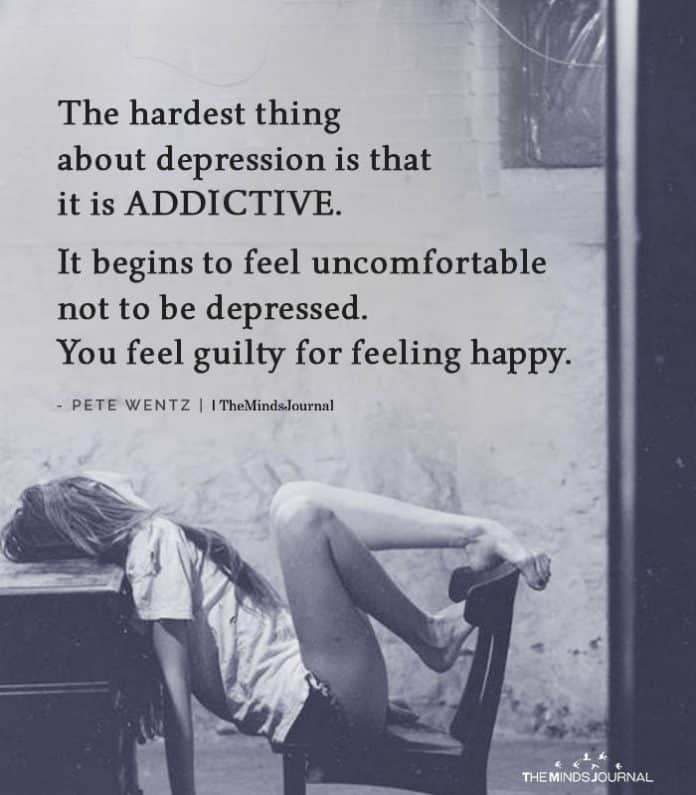
Depression Is Treatable
Seeking help does not make you look weak. You can implement a number of self-help strategies to cope with your depression. But you also need to get help with depression, go for therapy, and take medications for complete recovery.
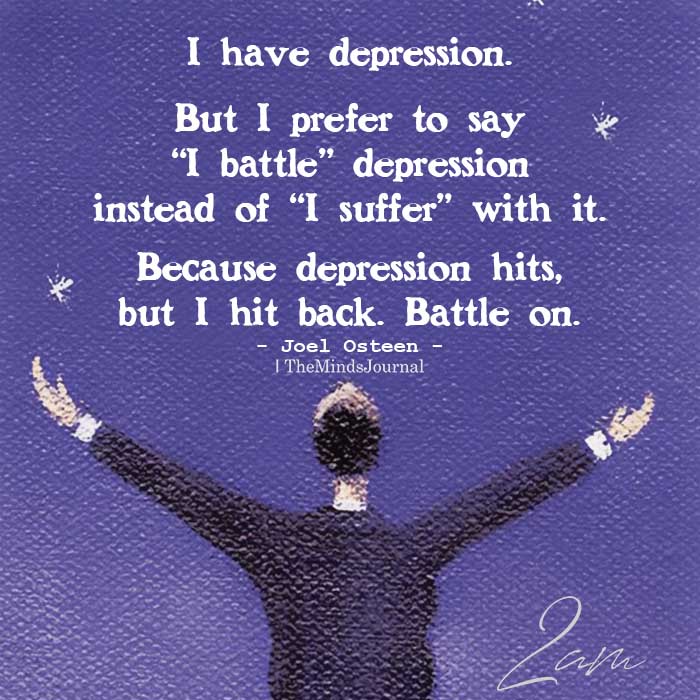
If you ask someone for help, they will not feel burdened. If a friend asked you to help them with their depression what would you do? Your friends and family would feel the same way. Our loved ones would be glad we asked for help and they would love to help us. Your loved ones would love to help you.
Do not be ashamed about reaching out for help with depression. Asking for help is the strongest thing you can do right now.
Don’t isolate yourself. Go ahead and talk to someone you trust.
Related: How To Help Your Partner (And Yourself) Overcome Depression
Frequently Asked Questions
How do I deal with relatives who seem insensitive to my depression?
Accept that some people will not understand or that they might be struggling too. Educate yourself about your condition, seek support elsewhere, and let go of toxic relationships.
Why do some people refuse to take anxiety and depression medicine?
There are several reasons that make people refuse treatment and medication for mental health, including denial, embarrassment, myths about mental health, and lack of awareness.
Can you fall into a depression or feel depressed without having clinical depression?
Depression is a complex psychological disorder that can develop over time and get triggered by stressful life events. Reasons for depression can be genetic or situational.
Why do I feel so depressed after I left a toxic relationship?
It’s normal to feel overwhelmed after a breakup, but if you suspect you are developing depression, then contact a mental health professional to understand your situation better.
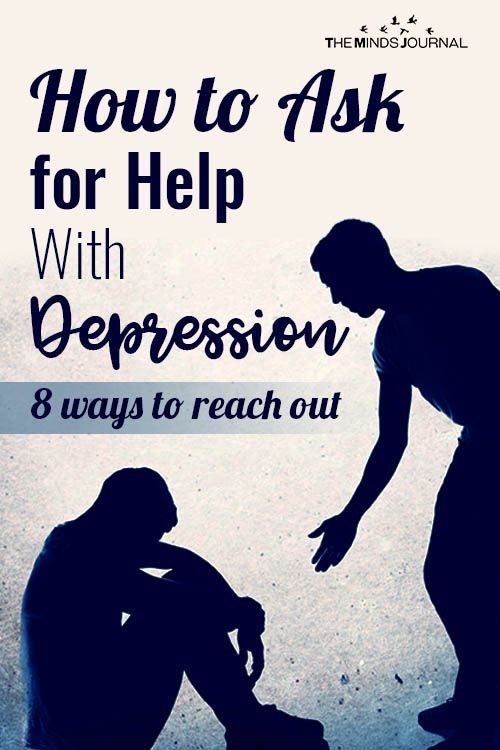


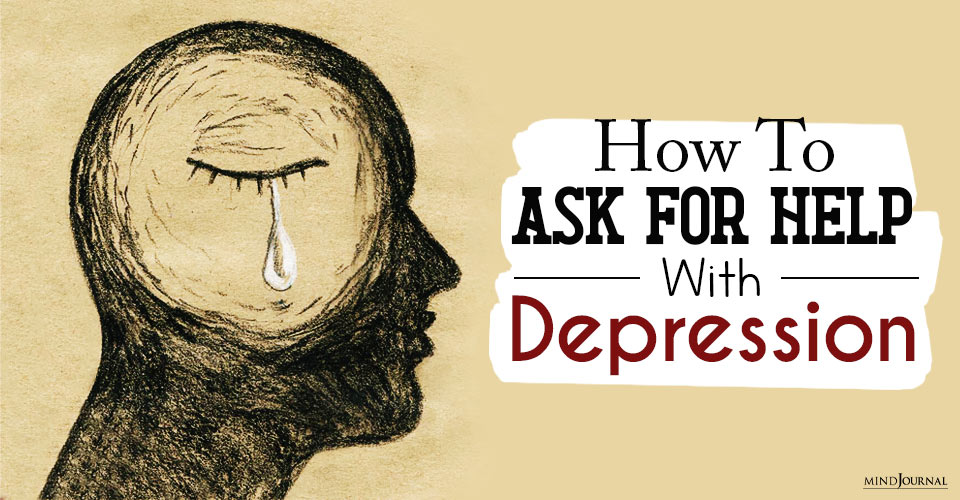
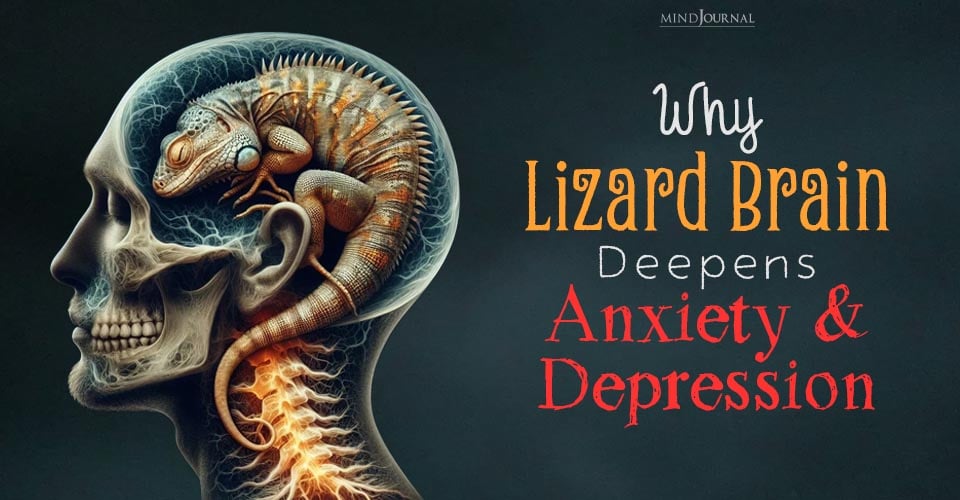






Leave a Reply